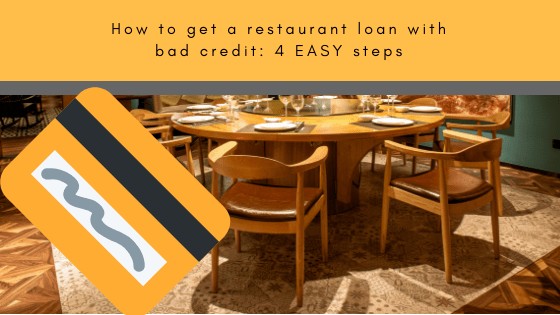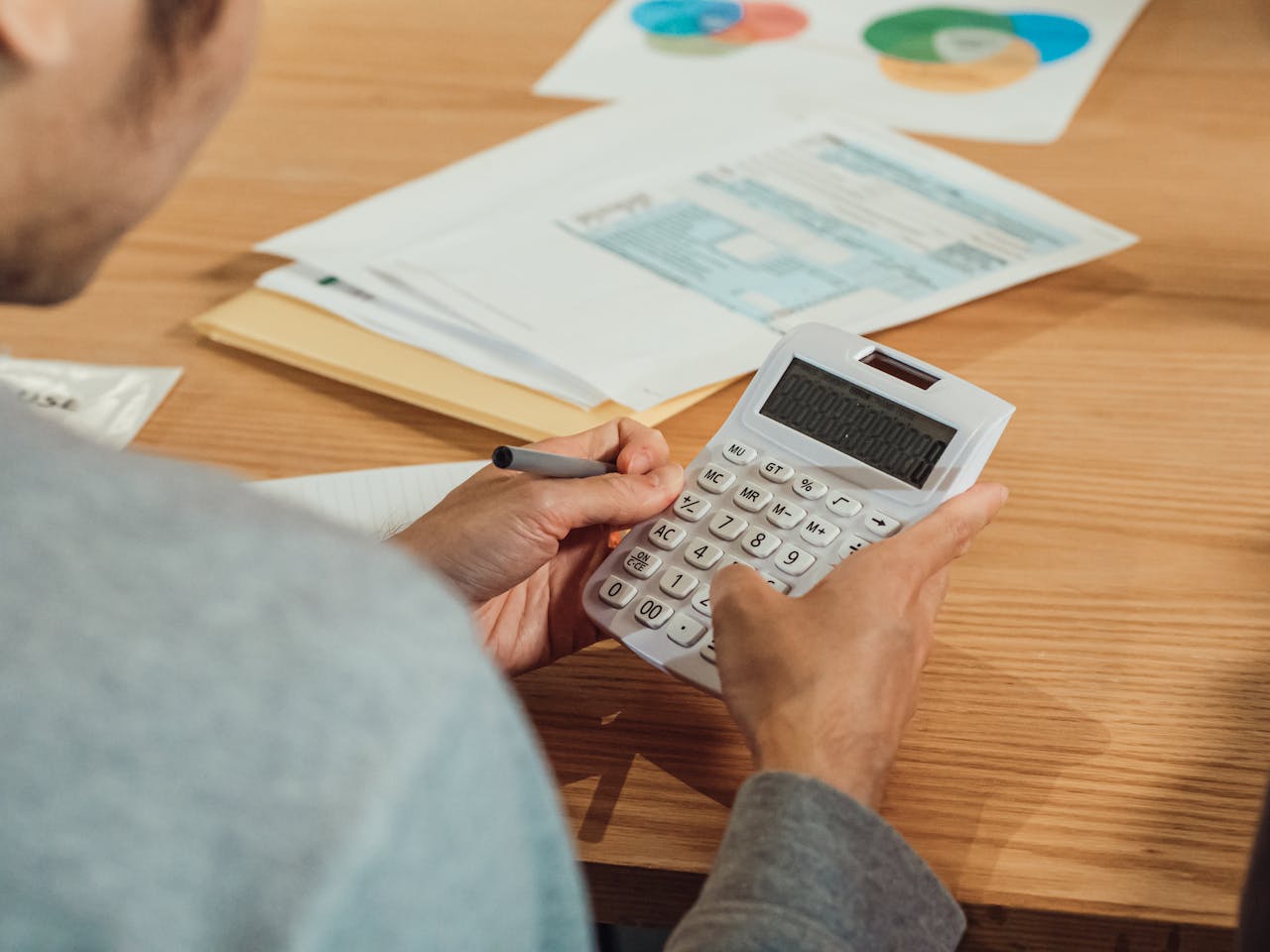How To Get A Restaurant Loan With Bad Credit: 4 Easy Steps

Maybe it’s your dream to open a restaurant, but unfortunately, you have bad credit. And let’s face it, even if your idea is great and your cooking skills are divine, bad credit can put a damper on things. Lenders and traditional financial institutions won’t make their decision based on anything other than financials. However, even if it makes things more difficult, it’s not impossible to get a loan with bad credit.
Like it or not, lenders will know your credit score if you want to open a restaurant. And it’s important that you know how to find it as well. You can contact your bank, FICO, or other online score calculators to help you figure out what your score is. However, when it comes down to it, your credit score is the biggest contributing factor to whether you qualify for a loan. And in most instances, if it’s bad, you shouldn’t be surprised if you hear a solid “no” from potential lenders.
However, don’t get discouraged yet. While most banks would turn you down in an instant, it’s still possible to pursue a restaurant loan from alternative financial institutions.
How To Get A Restaurant Loan With Bad Credit
If you’re looking to start your restaurant, but you have bad credit, read our steps below to see how even you can still pursue your dream.
First, Find Your Credit Reports And Credit Score
We touched a bit on the need for this above, but it’s still the first thing you should do if you want to open a restaurant. A lot of people with poor credit simply don’t know what their credit score is, so it’s important to sift through your financials to figure it out.
You’ll likely have to check your credit reports, and that’s information you can get from your credit card’s consumer credit bureau– such as Equifax, TransUnion, and Experian. However, the companies aren’t the be-all-end-all. They aren’t above potential mistakes, so you need to carefully read your financial reports to find if there are any mistakes. As soon as you find any mistakes, contact whichever bureau is affiliated with your credit card company as well as the information provider.
Even if your scores are sub-par, don’t fret too much. There are quite a few things you can do to build credit and also get loans for your restaurant.
Secondly, Nurse Your Credit Up To Full health
When it comes down to it, there are quite a few variables at work when calculating your credit score. Luckily for you, there are ways to improve the health of your credit. However, even though there are a ton of factors at play, try your best to focus on the biggest ones such as:
- Make all of your minimum payments on time
- Don’t use the entirety of your credit limit
- Build credit history by keeping credit accounts open even if they’re paid off
- Varying expensive purchases can help diversify your credit
- Only open new credit card accounts when absolutely necessary
Thirdly, Look At All Of Your Lender Options
This phase is mostly dependent on you improving your credit score using the prior steps. However, as long as you’ve put in the effort, you’ll be able to look at restaurant loan options soon enough.
It would be easy to simply take whatever loan comes your way first, but don’t do that. It’s always best to have a variety of options before making a decision. Depending on who you talk with, you could score better deals with lower rates. Essentially, don’t overpay on interest rates. Be patient and keep your options open.
As For The Fourth Step On The List, Make Sure You Check Out All The Possible Loans
While there is a huge variety of loan options out there for your restaurant, you’ll almost always be choosing between secured and unsecured loans.
Secured loans essentially mean “collateral.” So, with a secured loan, you’d have to offer up things like your house, car, and maybe even business assets in order to receive funding.
However, unsecured loans are more-or-less the exact opposite. There’s no collateral involved, and therefore it’s safer for you, but maybe a little riskier for the lender.
Types of loans include:
- SBA Loans (Small Business Administration)
- Non-SBA Loans
- Personal Loans
- Lines Of Credit
- Securities Based Financing
- Equipment Financing
- Revenue Based Loans And Advances
At the end of the day, even if your score is bad or you lack the credit history, you can have a co-signer or a guarantor sign for you in the case of a default.
The Three Cs for Qualifying
When you’re looking into loans, Finance Factory looks at the Three Cs: Credit, Cashflow, and Collateral. You’ll want to have a credit score between 600 and 800– with an ideal score of 680+. But we’ll also look for a minimum account balance of $1,000 – $5,000 for monthly cash flow (but also look at tax returns, profit, and annual revenue). As for collateral, we prioritize unsecured funding; however, collateral is just one option. As long as you have one of the Three Cs, you’ll qualify for a loan.
Finance Factory Helps You Through The Application Process And Guides You To The Best Possible Loans For You
Interested in finding funding for your business? Finance Factory would love to help! If you’re looking to find a loan, let’s chat! Get pre-qualified right now with our quick-step pre-qualification form! And don’t worry, this will not result in a hard credit inquiry of sensitive information. We just want to learn more about you and your business. Click below to get started!




